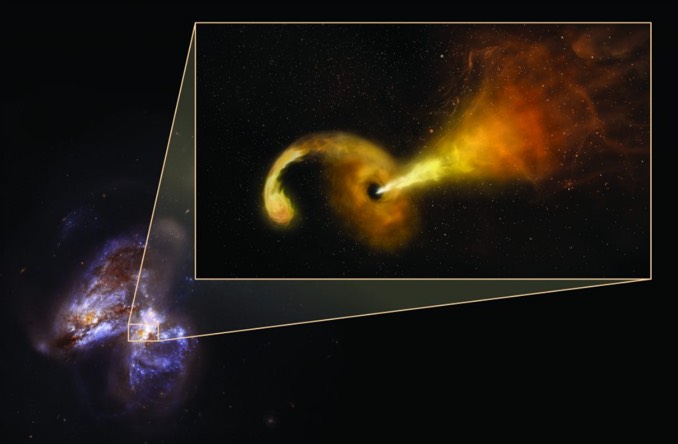
A storm of tiny dust particles on Mars has prompted NASA's Opportunity rover to suspend science operations. The Martian dust storm has grown in size and is now officially a 'planet-encircling' (or 'global') dust event.

Scientists have analyzed data from K2, the follow-up mission to NASA's Kepler Space Telescope, and have discovered a trove of possible exoplanets amid some 50,000 stars.

NASA’s Juno spacecraft took this color-enhanced image on May 23, 2018 24), as the spacecraft performed its 13th close flyby of Jupiter. At the time, Juno was 15,500 kilometers from the planet’s cloud tops.

Until now, astrophysicists had only been able to locate about two-thirds of the ordinary matter. In the new research, an international team pinned down the missing third.

While there is no physical evidence that parallel universes exist, the theories that explain how our universe came to be seem to suggest that they are inevitable.

For the first time, astronomers have directly witnessed the aftermath of a black hole consuming a nearby star, imaging the formation and expansion of a high-speed jet of material ejected in the maelstrom.

Researchers have identified 121 giant planets that potentially host moons capable of supporting life.

Two independent teams of astronomers have used ALMA to uncover convincing evidence that three young planets are in orbit around the infant star HD 163296.

We’re still a few years away from the final document, but serious proposals are in the planning stages for next generation space telescopes - HabEx, Lynx, Origins Space Telescope and LUVOIR.

One of the thickest dust storms ever seen on Mars has been spreading since early June. The Opportunity rover - 1 of 2 active rovers on Mars - has suspended science operations.

A new analysis of data from NASA's Dawn mission suggests that organic matter may exist in surprisingly high concentrations on the dwarf planet's surface.

The Instituto de Astrofísica de Canarias (IAC) and the University of Oviedo present today the discovery of two new planetary systems, one of them hosting three planets the same size as the Earth.

Spectroscopic measurements of gas dynamics at the core of the Milky Way have revealed several unusual objects visibly whizzing around the supermassive black hole at the center of the galaxy .

The finding has significant implications for whether life once existed on Mars.

A tiny fraction of dark matter could have a charge, allowing it to interact with regular matter during the time between the Big Bang and formation of the Cosmic Microwave Background, some physicists say.